I spent last weekend immersed in board games, at the CoRe Jolts Game Jam for Collaborative Professionals. The event was conceived, organized and hosted by mediator colleague, Sharon Sutherland (@ssuth).
I’m not much of a “gamer”. Yet, I appreciate the power of a well-designed game, be it board or online. So when I heard about the opportunity to actually design a collaborative game, I thought, go for it! Just say “yes”. I was glad I did. Fun. Learning.
The goal was to create collaborative board games. We were divided into teams, and with minimal guidelines, tasked with creating a collaborative board game, of our choosing, from scratch.
Here’s 10 observations (and a few pics) of the event (which started on a Friday night, and ran through till late Sunday afternoon).
- Teamwork. We worked in small teams (5-6 people each). Team formation followed time spent getting to know each other, and playing a few existing collaborative board games, together.
- Diversity. Each team was intentionally diverse; e.g., inter-generational, gender, life/gaming experience, storytellers…
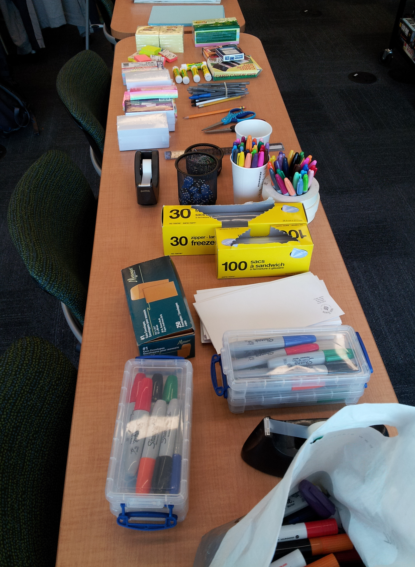 Space and tools. A welcoming space for teamwork and socializing – in this case, a university facility setting. And, tools; paper, scissors, crayons, dice, creativity card decks, etc… tools of the trade.
Space and tools. A welcoming space for teamwork and socializing – in this case, a university facility setting. And, tools; paper, scissors, crayons, dice, creativity card decks, etc… tools of the trade.- Breaking bread time. Social time is critical to any team success, whether in a face-to-face setting or virtual (personal, non-business, conversations). Food and drink time – a motor for creativity.
- Go with the flow. The direction each team took followed the team members’ passion. Things happen when you go with the group’s passion – urgency, opportunity, motivation – as a unifier, as a magnetic attractor.
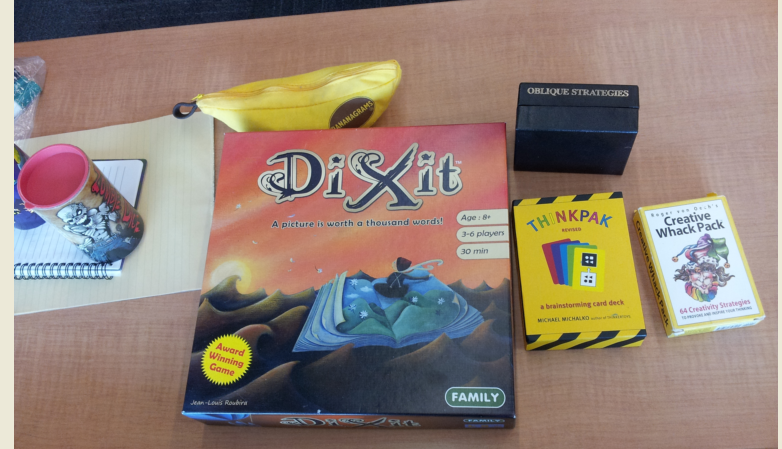 Build on… We built on existing frameworks; e.g., existing collaborative games designs, common board game patterns (this is where gamer expertise plays large). Adapting what already exists is a hallmark of innovation practice.
Build on… We built on existing frameworks; e.g., existing collaborative games designs, common board game patterns (this is where gamer expertise plays large). Adapting what already exists is a hallmark of innovation practice.- Incubation time. The 2.5 day format allowed for lots of idea incubation time (sleep or whatever). Idea incubation is a creativity trigger, if there ever was one.
- Cross-pollination. Each team intermittently shared their progress, and gained feedback, with another team; networking ideas.
- Iteration. Solutions evolved via an integration of thinking (designing) and doing (playing, testing). Given the weekend time box, iteration really is the only option.
- Welcome uncertainty. Creating something new, the collaborative way, requires trust in the process and letting go of the outcome. The Dynamic Duo: Collaboration and Chance.
Many thanks to Sharon, for organizing the weekend’s activities, and nurturing our creative side.
Where the games end up, product-wise, is anybody’s guess. Maybe the weekend was the end of it. Maybe someone(s) will act on their passion, and take it to the next step.
Ever participated in a games jam, of any kind?
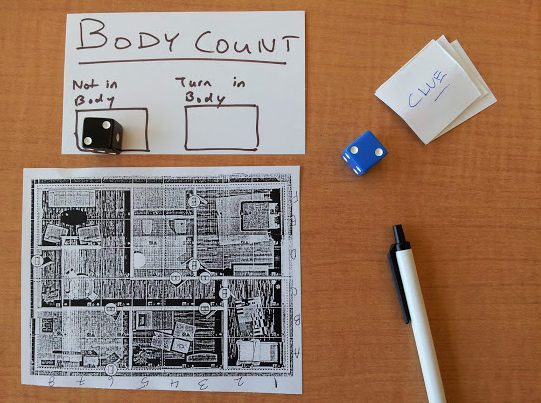
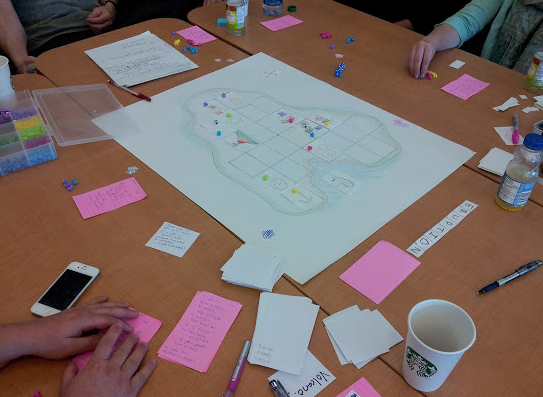
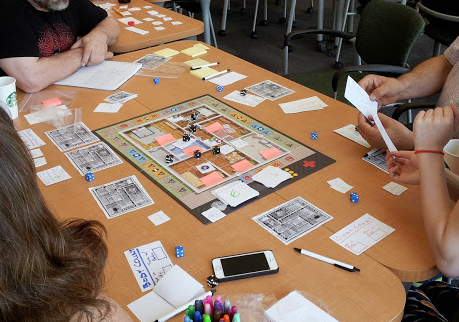

Speak Your Mind